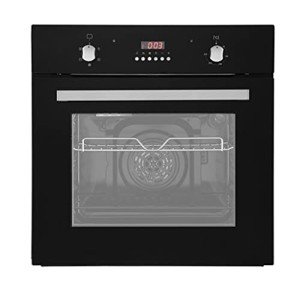Indisputable Proof That You Need Built In Oven And Hob
The Modern Kitchen: A Guide to Built-In Ovens and Hobs
In today's hectic world, where cooking has actually ended up being an imaginative outlet and a crucial part of everyday life, having the right kitchen appliances is vital. Among these, built-in ovens and hobs stick out as favorites in modern-day kitchen areas. This article intends to check out these appliances in depth, discussing their advantages, types, installation choices, and vital ideas for picking the best models for your kitchen.
Understanding Built-In Ovens and Hobs
What are Built-In Ovens?
A built-in oven is a home appliance that is created to fit effortlessly into kitchen cabinetry, providing a clean visual in the kitchen. They differ from freestanding ovens and are understood for their adaptability, available in numerous sizes and performances. Built-in ovens can be electric, gas, or perhaps steam ovens, making them ideal for different cooking styles.
What are Hobs?
Hobs, likewise known as cooktops, are the flat cooking surfaces typically located on the countertop. Like ovens, hobs come in many types, consisting of gas, electric, induction, and even integrated designs. Their compact nature enables versatility in kitchen designs and designs.
Table 1: Comparison of Built-In Ovens and Hobs
Function
Built-In Oven
Hob
Setup Type
Integrated into kitchen cabinets
Installed on counter top
Cooking Methods
Baking, roasting, steaming
Boiling, frying, sautéing
Types
Single, double, combination
Gas, electric, induction
Aesthetic appeals
Modern, sleek styles
Different finishes available
Control
Digital programming, handbook
Knob or touch control
Expense Range
Mid to high-range
Wide, depending on type
Advantages of Built-In Ovens and Hobs
Aesthetic Appeal
Built-in ovens and hobs contribute significantly to a structured appearance in modern kitchens. built under double oven and hob packages into kitchen cabinetry allows for a tidy and expert finish that complements any kitchen design.
Space-Saving Design
Among the essential benefits of built-in ovens and hobs is their space-saving design. As they are fitted directly into cabinets, they maximize important counter space, making the kitchen feel larger and more organized.
Versatility in Cooking Methods
Built-in ovens come with different cooking functions, such as convection, grilling, and self-cleaning choices. Likewise, hobs provide varied cooking techniques, including fast boiling with induction innovation or the traditional flame of gas hobs. This flexibility permits home cooks to try out a vast array of cooking methods.
Boosted Safety Features
Numerous contemporary built-in hobs and ovens featured sophisticated security features, such as automatic shut-off, cool-touch doors, and child locks. These features enhance safety, especially in homes with children.
Choosing the Right Built-In Oven and Hob
Choosing the best built-in oven and hob for your kitchen involves a number of factors to consider:
Factors to Consider
- Kitchen Layout: Understand the flow and design of your space to select appliances that fit your style.
- Cooking Habits: Are you a casual cook, or do you prepare complicated meals? Comprehending your cooking needs will assist your choice.
- Budget plan: Building a budget plan will assist limit your options without spending too much.
- Energies Available: Check if you have access to gas lines for a gas hob or if you prefer electric options.
- Energy Efficiency: Look for energy-efficient designs that can save on electrical power or gas costs in time.
Types of Built-In Ovens and Hobs
Built-In Ovens
- Single Ovens: Ideal for smaller sized kitchen areas or casual cooks.
- Double Ovens: Great for those who often entertain or prepare multiple meals simultaneously.
- Mix Ovens: Feature both traditional and microwave functionalities.
Hobs
- Gas Hobs: Perfect for those who prefer the control of open flames.
- Electric Hobs: Common and easy to use, but might take longer to warm up.
- Induction Hobs: Quick heating and energy-efficient, however require suitable cookware.
FAQ Section
**Q1: Are built-in ovens more costly than freestanding ovens?A1: Generally, built-in ovens are more costly due to their style and installation requirements. However, the cost can differ based upon functions and brand names. Q2: Can I set up a built-in oven myself?A2: While DIY
installation is possible, it is advised to hire a professional for gas and electrical connections to make sure safety and compliance with local codes. Q3: What upkeep do built-in ovens and hobs require?A3: Regular cleansing is essential. Hobs may need occasionaldescaling, and ovens can benefit from self-cleaning features if**
offered. Q4: How do I select in between gas and electric hobs?A4: Consider your cooking choices, offered utility connections, and safety functions.**
If you value accurate temperature control, gas might be the
right choice. For fast heating, electric or induction might be better. Q5: What are the energy efficiency rankings of built-in ovens and hobs?A5: Most modern built-in ovens and hobs come with energy scores, comparable to other appliances.
Try to find those with high scores to minimize energy costs. In summary, built-in ovens and hobs are vital parts of a stylish and practical modern-day kitchen. Their variety, safety features, and visual appeal make them an attractive option for homeowners and aiming chefs alike. By thoroughly considering your cooking practices, kitchen design, and style choices, you can choose the right built-in appliances that improve your cooking experience and change your kitchen into a culinary haven. The investment in these appliances not only adds worth to your home however likewise elevates your cooking to new heights.  **
**